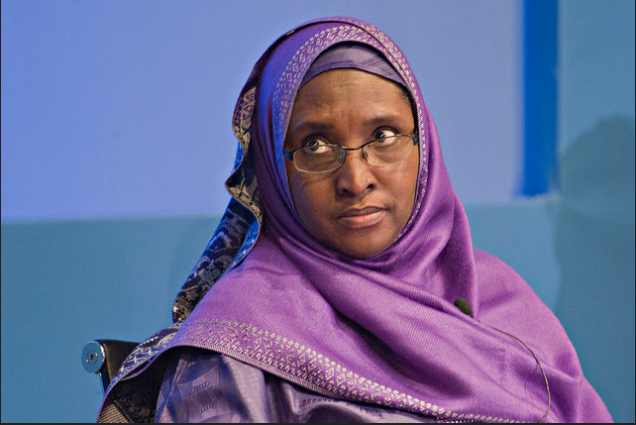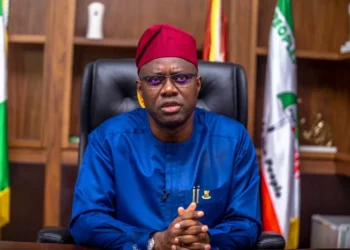The fact that the nation’s pension assets has grown to about N14.5 trillion in the last 18 years is plausible. While investment income has risen in excess of N2.8 trillion, investing a whooping 70 per cent of the pension funds in federal government bonds, is an indication that the Pension Fund Administrators(PFAs) have few investment windows.
Earlier, in 2020, the federal government was planning to tap into the nation’s pension funds to fix the infrastructure deficit.
The minister of Finance Budget and National Planning, Mrs Zainab Shamsuna Ahmed, had said then, that Nigeria Infrastructure masterplan has been costed, adding that, it would require up to $10 billion to bridge the infrastructure deficit.
“It has also been analysed and categorised into investment that government needs to make on its own—investment that government needs to make in partnership with the private sector—-an investment that the private sector itself can offtake. We are currently in the process of reviewing it to be able to input the requirements of infrastructure into the Nigeria Agenda 2050 and the Nigerian Development Plan we are now working on.
“The government has just taken a decision to set up an infrastructure company (Infraco). We are trying to encourage idle funds. Funds from pension for example, to be put into a vehicle that will enable Nigerians and the pension funds invest in a long term basis into structured investment vehicles. This will not be driven by government. It will be private-sector driven. It could be a combination of long- term bonds or a direct investment into specific chosen projects. Also, we are working with sub-national governments in building infrastructure using funds from the private sector,” she pointed out.
However, there was public outcry and apathy over the plan of the government to use pension funds for infrastructure. The public outcry leveraged on the fear of the people over the ability of government to repay such ‘loans.’ Justified to some level, but experts said, the public wouldn’t have had that apathy had the right fiscal structure is in place.
Similarly, Coronation Asset Management has said, Nigeria can make use of domestic pensions rather than global debt for national development.
It also said the country can unlock sustainable growth by leveraging its risk-managed long-term funds. It said this in a report titled ‘Unlocking Nigeria’s $33.4bn pensions pot for growth’.
The report said: “as of March 2022, the assets under management of the Nigerian pensions fund industry were valued at the equivalent of $33.4bn. Representing 19 per cent of the Nigerian GDP, these funds, correctly invested and deployed, present an opportunity for the country to address its $100bn annual infrastructure shortfall.”
Despite recent Nigerian legislation revising pension fund allocation to allow a broader range of investments, it stated that, Nigerian pension fund administrators continued to make only limited allocations to infrastructure funds. Even with combined private equity and real estate investments, recent allocations to infrastructure hover between 1.5 per cent to 2.1 per cent of assets under management, it added.
By contrast, it said, Pension Fund Administrators in Australia, Canada, Japan, Netherlands, Switzerland, the United Kingdom, and the United Sates allocated excess of 26 per cent of funds to real estate, private equity and infrastructure.
The report said: “a combination of poorly understood regulation, limited knowledge of alternative assets, and the perceived risk-free returns offered by fixed income investments have kept Nigerian pension fund administrators away from alternatives in general, and infrastructure in particular.
“To date, the allocation of pensions investment to fixed income instruments (issued by Nigeria’s federal and state governments) has averaged 67 per cent over the last 10 years, in line with government borrowing supported by monetary policy decisions in a volatile environment.
“Just as historically, the sizeable allocation to government instruments was regulatory driven, so too is the recent introduction of a multi-fund structure, a welcome legislative attempt to redress the concentration of fixed income investment in government securities.”
Meanwhile, the former acting Managing Director/CEO, Bank of Industry (BoI), Dr Waheed Olagunju, said, Nigeria needs financial commitment of $80 billion annually for 10years to fix infrastructure deficit in the country, believing that the huge pension funds could a huge part in this.
Speaking at the national workshop of the Association of Business Editors in Nigeria (ABEN), themed: ‘Infrastructure Financing as Pathway to Sustainable Economic Development,’ on Wednesday in Lagos, urged government to upgrade its fiscal structure to tap into opportunities of the over N14.5 trillion pension funds assets.
According to him, “the country needs $80billion every year for the next 10 years. To address this, government must partner private sector who will provide funding for infrastructure projects. Pension funds asset is another funding window “
Similarly, the commissioner for Economic Planning and Budget, Mr Sam Egube, stressed that, there is the need to raise capital from all sources, including pension fund assets to fix infrastructure, but doing this, will ensure that the fiscal financing structure meets international standards, such that, the private sector can finance projects without exhibiting any fear of losing their money.
Meanwhile, the managing director/CEO, FBNQuest Funds, Ijeoma Agboti, explaining reasons why government and venture capital have not taken advantages of the infrastructure quota of the pension asset, said, incentive system of the Pension Fund Administrators(PFAs) is a disadvantage.
According to her, “the government through the National Pension Commission(PenCom) and Pension Fund Administrators(PFAs) should change the incentive system. so that fund can be used for venture capital. But PFAs are in a hurry to get quick returns on investment. And in venture capital, it might take 10 to 12 years to get your returns on investment, because those who took the money will need to use it to grow their businesses, stabilise abs make profit before repayment is being made.”





